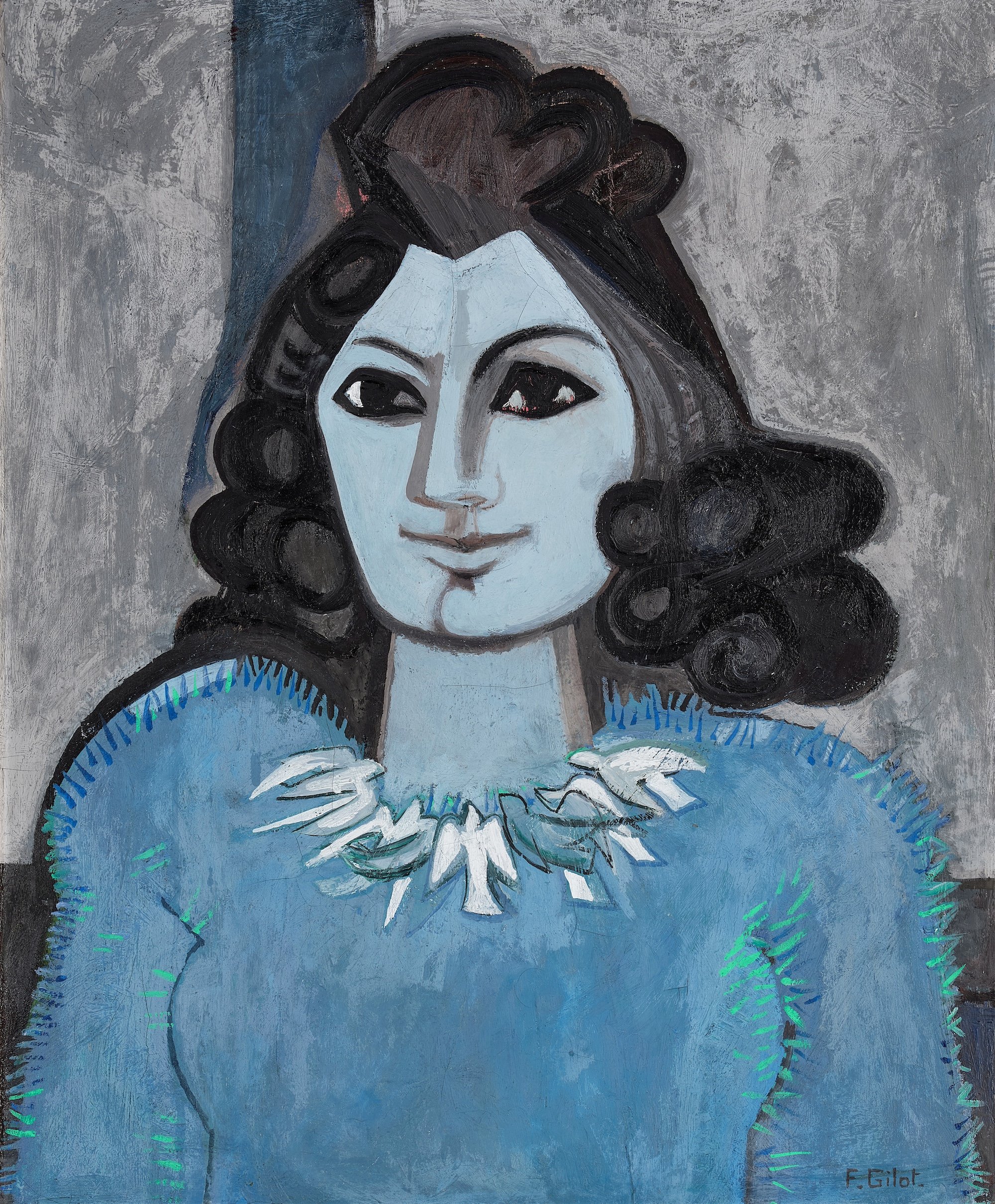
In light of the recently celebrated International Women’s Day, what better occasion is there to draw focus to Françoise Gilot, an accomplished artist long overshadowed by her male peer and long-time partner, Pablo Picasso? This portrait, offered at Sotheby’s modern and contemporary evening sale on March 6, marks Gilot’s first appearance in a major sale in London or New York.
Estimated to fetch between £150,000 and £200,000 ($188,000 and $250,000), the work trebled that after attracting some heavy U.S. bidding. It hammered for £570,000, selling for £723,900 ($918,774) with fees, making it the fourth-most-expensive work by the artist to be sold at auction.
Gilot’s work has historically been undervalued and, according to the Artnet Price Database, nearly half of all of works by the artist have sold for over their estimate within the last five years. The artist’s auction record stands at $1.3 million, which was set in 2021 when her painting Paloma à la Guitare (1965) sold for a tremendous 412 percent above its estimate in an online auction called “(Women) Artists” at Sotheby’s. (It’s worth noting that figure is still many magnitudes shy of Picasso’s $179 million record price.)
Portrait de Geneviève avec un collier de colombes depicts one of Gilot’s friends and a frequent sitter for the artist, Geneviève Aliquot. It was painted in 1944, at the beginning of Gilot’s decade-long relationship with Picasso. The dove motif in the necklace, which inspired the painting’s title, was frequently used by Gilot in her work. Picasso later appropriated the dove, the first of his La Colombe works appearing around 1949.
French painter Françoise Gilot in the studio, circa 1970. Photo: Michel Ginfray/Sygma/Sygma via Getty Images.
This work was consigned by the entrepreneur and author Arianna Huffington with the expressed intent of raising the artistic legacy of Gilot, who died last year at the age of 101. The artist gifted the work to Huffington in 1986; the two had become friends while the latter was writing her book Picasso: Creator and Destroyer (1988), one of the first biographic accounts of the Spanish artist to address his unsavory treatment of women.
Shortly after the sale, on March 12, the Picasso Museum in Paris announced it will now include a gallery dedicated to the work of Gilot, as part of a reinstallation of its collection. On view will be works spanning the artist’s career; the room will be solely focused on Gilot as an artist and not feature paintings or photos of her by Picasso, or include anything that positions her as his muse.
According to her memoir, which will also be included in the display, Gilot met Picasso in 1943 when she was just 21 and he 61. They had two children, Claude and Paloma, together during their relationship, through which time she continued to paint. After Gilot left Picasso in 1953, taking the children with her, Picasso destroyed Gilot’s possessions, including letters to her from Henri Matisse. He also tried to tank her career, demanding the Louise Leiris Gallery end its representation of her work, and insisted she no longer be invited to show with the prestigious group of French artists Salon de Mai. When her memoir was published, in 1964, the uproar in France was so great that Gilot fled to the U.S.
Picasso museum curator Joanne Snrech told the Guardian it was important to include a display of Gilot’s paintings to dispel the notion that she was “just Picasso’s partner.”
“She was an artist in her own right with a very long career during which her work evolved,” Snrech added. “We thought it was important to show not just her place in Picasso’s life but also that she was much more than just his companion. After all, she spent just 10 years with him out of more than 100.”
Work of the Week is excerpted from The Back Room, our lively recap funneling only the week’s must-know art industry intel into a nimble read you’ll actually enjoy. Artnet News Pro members get exclusive access—subscribe now to receive this in your inbox every Friday.